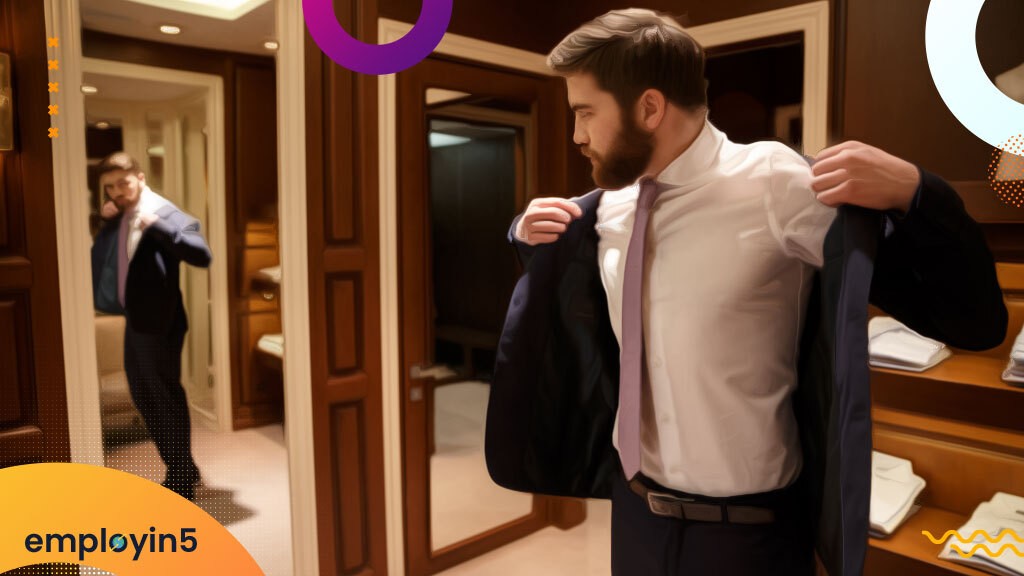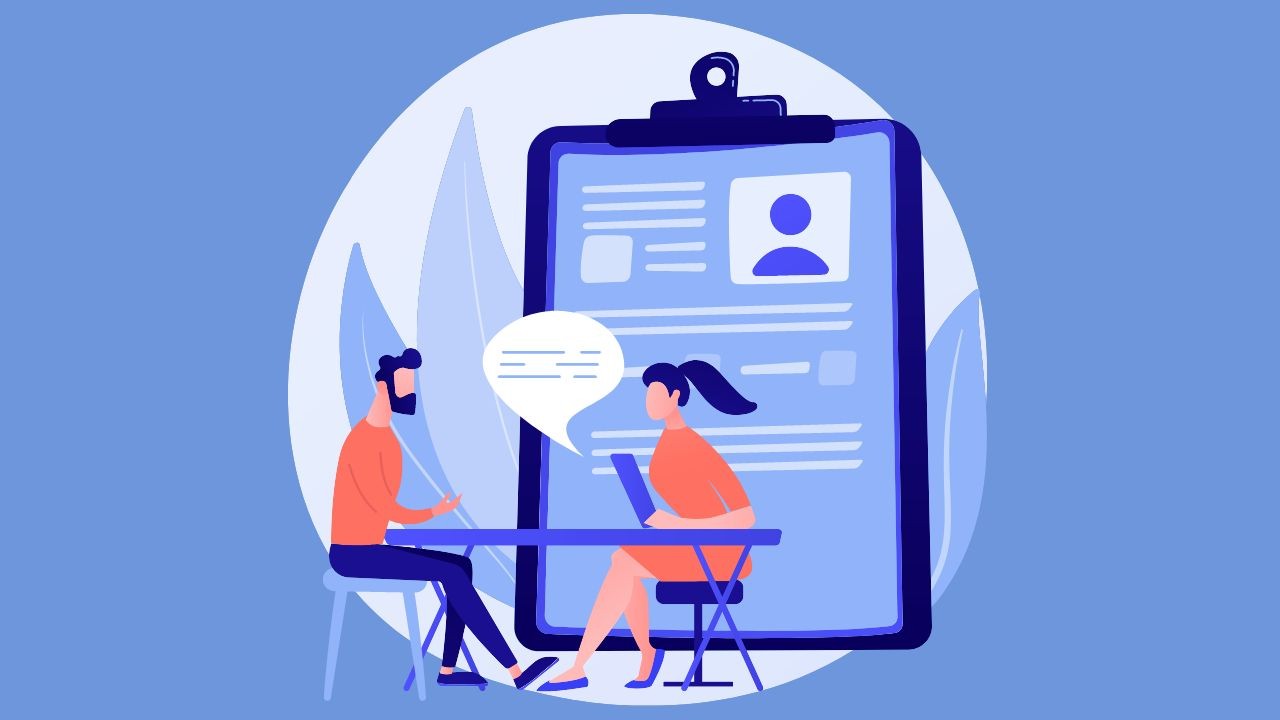Job search, application and interview process; the three main stages of employment for anyone starting their career. The first two stages are the easy part, mostly done solo and quickly. The third stage is where we usually get caught up in many questions. Interview is an essential part of any job application, whether it’s for a high-ranking position, or a lower level employment job.
Anyone who is applying for a job is required to enter the ‘interview’ stage before receiving an answer. The question is, what do we expect in a job interview, especially one that is face-to-face and how can we make sure it is successful?
Absolute success in an interview is not a guarantee for anyone, however, there are some useful points to consider before going for an interview. Here are some tips to keep in mind before going to a face-to-face job interview:
1. Communication

The very first skill an employer will look for in a candidate is your communication skills. In questions regarding communication skills, the employer, a.k.a. interviewer, will look to see if you are fit for the position; while you, the interviewee, will decide if you are interested in the company and the position they offer.
In these questions, you will need to demonstrate your communication capabilities by answering questions in a precise and brief manner. What they are looking for is how well you are answering the question while communicating your response. You will need to stick to the point while being clear, and also communicating your response in a way that answers the question. Try to be brief, but not too much that people are confused. Try not to babble long that people are bored and confused.
Try to sound energetic so that they can see how enthusiastic and keen you are for the job, but not too much that you seem someone who is unable to control his/her emotions. Show that you are emotionally stable and in control of yourself.
Communicate yourself in a respectful manner, be polite and do not to interrupt. Listen carefully to the question and respond to what they are asking for, rather than what you think they are asking.
Communication skills are the first and most important skill the interviewer wants to see, mainly because, it is the foundation of any relationship. To have a professional relationship between an employer and employee, it is essential that both parties have well-established and good communication skills.
Showing eagerness in having a professional relationship with colleagues starts with having good communication skills.
2. Research

Doing research is the key element of any activity, whether it’s for a project you are beginning or for an interview of the job you have applied for. Always do your research thoroughly.
First, study the company. Visit their website and read the ‘about us’ section. Move on to their social media accounts and read their posts, maybe comment and like some of them. Have snippets of information about the company, what they do, their future plans, market size, competitors and their strategy in general.
Next, research the employers of the company. Find them on twitter and LinkedIn, see what they are posting and how they have developed their career over time. If the company is well-known, they will have had given interviews to media outlets. Find these interviews and listen/watch them, while taking notes about the information the person is giving. This will allow you to understand the kind of position the company will require you to have in the face of the public and media.
Finally, read the job description thoroughly. Have a print out of the description, or save it on your digital device, because once the job application process ends, the company will remove the job ad from the online source. Therefore, save a copy of the description at all times. Know the requirements of the position you are applying for and refer to these requirements when you are talking about your skills and qualifications.
Do research on the common questions asked in an interview with reference to the industry the company is in. For instance, if you are applying for a position in a lawyer’s office, do research on the common questions an attorney and HR of an attorney office would ask. Some of these common questions would be as follows:
-
Why do you think you are fit for this position?
-
Tell us about yourself
-
How do you think you will benefit from this position for your career?
-
What will you be giving to the company if you are accepted to this position?
Research the FAQ’s and prepare your answers in a manner that you would use when you are in the interview.
3. Demonstration

Showing your skills and qualifications is an excellent way to prove you are fit for the position. Demonstrate your experience with examples.
Show the interviewer some of your situation-based competencies by giving examples of when and how you solved a particular problem and overcame challenges. This is the moment to show your brilliance and shine.
Giving examples of your accomplishments will demonstrate that you are fit for the job, which is what the interviewer is looking for.
Do not reply ‘pass’ or ‘I do not know’ to any question; this is not a television/radio game show where you win a prize, this is an interview for a job you have applied for. Show that you are ready for the challenge of the interview and are able to answer questions, come what may.
4. Questions

At the end of the interview, generally, the interviewer will ask if you have any questions for them. This moment is a very crucial one, as it will show the interviewer that you are ready to engage with the company and are interested in the position and the future it holds for you.
Always ask at least three questions and the most five, you don’t want to bombard them with too many questions or seem uninterested.
Some points you can ask about are:
-
What happens next – how the process will proceed
-
What kind of training you will receive?
-
What kind of a culture/environment the company has?
-
How you did at the interview
-
What you will be focusing on if you start, in the next month
-
How the company will be developing over the years
-
What advice they would give to the successful candidate
-
What kind of values the company expects the staff to have?
-
What they personally like about the company
-
What are some milestones to achieve in order to succeed in the role?
If you do not have questions, you can always say that you would like to add a few points before finishing off, and then add some salient points about your skills and why you think you are ‘fit’ for the job and how you will do well once you are successful.
5. Appearance

First impressions are always important, for any new beginnings. It shows the value you give, and the importance you place on something that is ‘first’ in your life/career.
When going for an interview, be smartly dressed, but not too much that it looks like you are going to a celebratory event. Unless they say it’s okay to wear casual clothes, always be dressed in ‘jacket and tie’ mode, for men; and ‘suit’ or ‘appropriate dress’ for women.
Be clean, tidy and smart enough to show that you care about the position, but do not overdo it. A second and third opinion about what to wear to a job interview always helps you to decide.
6. Attitude

Positivity will take you a long way, try to be positive and energetic in the interview, but not too much that you are not yourself. The best advice of any attitude for a job interview is to be yourself.
Do not try to show them someone you are not, mostly because, if you are successful in getting the job, you will be working with them and they will eventually see your true self. Therefore, always show them who you are, in a polite and kind manner.
Your posture will also tell a lot about your attitude. Do not slouch or lay back. Sit up straight with your shoulders up and chin at a reasonable level. This will show that you are respectful towards the person in front of you and are taking the interview process seriously.
Use your mimics and have eye contact, this will show them you are engaged and interested. Nobody likes to talk to a grouchy person who does not listen.
It’s okay to be nervous, but be aware of this and try to stay present. Take deep breaths to calm yourself and think about your answers. A three-second thinking time is given to everyone who is speaking, whether it’s at a conference or a face to face job interview.
Being yourself will portray you as a genuine and warm person. This will demonstrate your personality as a team worker, good communicator and understanding employee.
7. Technique
While many people think ‘technique’ is a terminology for the engineering industry, it can actually be used for anything, such as a face to face interview. The famous STAR technique is popular for its precise and easy way of demonstrating your skills and capabilities in relation to the requirements of the job.
So, what is the STAR technique? Here is what the letters stand for:
S – Situation: this is where you explain your case, i.e. the situation you were in
T – Task: this is where you talk about your duties in that specific situation
A – Action: this is where you discuss how you solved the problem/situation
R – Result: this is where you finish by illustrating the result of your problem solving and/or situation handling
Afterwards, Reflection is the extra stage, in which you point out to the interviewer the important points that make you stand out as a candidate based on the situation you talked about earlier. You will need to reflect on your general performance for that particular situation and talk about which step you would do differently if faced with the same/similar situation/problem.
The questions will usually come in a ‘competency-based’ style, in other words, they want to see your competencies from the answers you will provide.
Talk about your examples by touching base on the requirements in the job description. For instance, talk about a time where you and your colleagues dealt with a problem as a team, and finish the sentence by demonstrating your capability of working within a team in a collaborative and efficient way.
Try not to repeat your CV, because they have already read it. Instead, talk about your previous experiences by giving examples using the STAR technique for each of the companies you have worked with.
Usually, the interview will begin with an ice-breaking question, mostly to get you relaxed and motivated for the interview. Afterwards, they will have a simple question such as ‘Why are you interested in this position?’. Try to be approachable and honest with these simple questions. This will calm you down and set a positive atmosphere within the room.
Always be very specific and accurate in how much involved you were in a particular situation handling and/or problem solving. Be honest about what your duties were, and what your role was, how much you did and how much the project benefitted from your work. Be clear about your responsibilities in order to avoid any misrepresentation.
Here are some very general competency related questions, to which you can find details from the YouTube link below.
Give me a time when you solved a problem
Can you give an example of a difficult situation and how you handled it?
How would you describe your work ethic?
What is the key to building a great relationship?
Source: https://www.youtube.com/watch?v=HLrXOmpkf5o
The interviewers will generally look at the depth and complexity of the response you give to their questions. The STAR technique is an easy way to ensure success for answering in the proper way. The more complex an answer you give, the higher percentage of scoring. Much like deep-diving in the ocean/sea. The deeper you dive, the more likely you will find that pearl in that oyster.
8. Practice and Prepare
Practicing and preparing is always a good way to warm yourself up. You are about to enter an interview for a job you want, prepare yourself for it, but not like entering a battlefield.
Have a friend or family member pre-interview you with mostly likely questions to be asked. In other words, have a mock-interview to see how much you are prepared. You can record the interview on video and watch it later to see your mistakes and weaknesses. Asses how much you are ready for the interview and fix any mistakes that you see. It’s what they always say: Practice makes Perfect.
9. Update
Do research not just about the company, but also about the industry you are about to enter. Study the industry’s past and present and read about the kind of future the industry might have. Refer to media outlets such as newspapers and informative magazines. Think tanks and commentary pieces by experts and analysts are also a good source to read about the projections of any industry.
Some points to research about the industry are:
-
Number of workers/companies/clients
-
Kind of new technologies used
-
The global and national market size
-
The projections for the next years
-
The turnover contribution to the economy
-
The biggest companies of the industry and the policies
-
The political campaigns related to the industry (but do not mention these in the interview. This is for your information only)
-
The economic development and the business-related steps taken to grow the industry
The more you know about the industry, the more confident you will be in answering questions related to the role and your competencies. This is very much like knowing the SeaWorld, the more you know the kind of creatures living in the depths of the water, the likely you will be in becoming successful in finding what you want, since you will know where and how to look.
10. General Rules
Finally, here are some general rules to keep in mind:
-
Be approachable and likeable
-
Make good use of your time; time management is a skill and they will look for it during the interview
-
Read the job description carefully and always listen attentively to what they are saying and asking
-
Keep your answers hyper-relevant to the questions, and avoid any straying off-track; nobody ever wants too much information.
-
Keep in your mind the point of your answer and try to focus on that
-
Try to keep the interviewer awake and interested in your answers
Being successful in a job application can be a difficult time, and it’s okay to be nervous. When you feel overwhelmed, just take a deep breath and try to gather your thoughts. Always think before you answer, so coming prepared with research will make this challenge easier for you. It will also show that you are taking this process seriously and are keen on being successful.
Remember, the interviewer is looking to see that you are fit for the position in relations to your skills and qualifications by looking at your past experiences. Demonstrate your quality and expertise by giving examples of your experiences and illustrating that your skills and qualifications meet the requirements in the job description.




